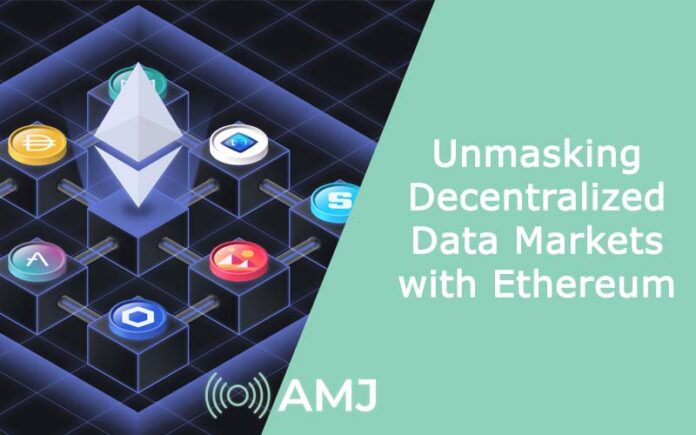Decentralized data markets offer a promising solution for increased security, transparency, and efficiency. This article explores the concept of leveraging Ethereum to facilitate decentralized data markets and key components in it. Platforms such as the etherum code a unique automated trading bot, are becoming integral to the dynamic world of decentralized data markets.
Leveraging Ethereum for Data Market Operations
Setting up decentralized data marketplaces on the Ethereum network is a fundamental step in leveraging Ethereum for data market operations. These marketplaces can be created by exploring existing Ethereum-based data market platforms or developing custom solutions. By utilizing Ethereum’s smart contract functionality, data market participants can establish predefined rules and conditions for data exchange, ensuring secure and automated transactions.
Smart contracts play a crucial role in data market operations on the Ethereum network. These self-executing contracts are encoded with specific instructions and conditions that facilitate data transactions. They eliminate the need for intermediaries and provide a trustless environment where participants can confidently exchange data assets. By leveraging the power of Ethereum’s smart contracts, data market operators can streamline processes, reduce costs, and enhance transparency.
In addition to secure data transactions, Ethereum also offers solutions for privacy and data integrity. Through encryption and verification mechanisms, sensitive data can be protected from unauthorized access or tampering. Participants in the decentralized data market can have confidence that their data remains private and secure, fostering trust and encouraging participation.
Tokenization is another significant aspect of leveraging Ethereum for data monetization within data market operations. Ethereum-based tokens, such as ERC-20 and ERC-721, can be utilized to represent and trade data assets. Tokenization allows data to be divided into smaller units, enabling fractional ownership and facilitating microtransactions. By tokenizing data assets, participants can unlock new opportunities for monetization and establish a value system within the Ethereum ecosystem.
By leveraging Ethereum for data market operations, the challenges of traditional data markets, such as centralization and limited transparency, can be overcome. Ethereum’s decentralized nature, coupled with the use of smart contracts and tokenization, creates a more inclusive and efficient data market environment. This opens up possibilities for industries such as finance, healthcare, and supply chain management to revolutionize their data exchange practices and unlock the potential for innovative applications.
Leveraging Ethereum for data market operations offers a compelling solution for secure and transparent data transactions. The Ethereum blockchain provides the infrastructure necessary for establishing decentralized data marketplaces, enabling the implementation of smart contracts, ensuring privacy and data integrity, and facilitating data monetization through tokenization.
Key Components of Decentralized Data Markets on Ethereum
Decentralized data markets built on the Ethereum blockchain incorporate several essential components to ensure transparency, security, and efficiency. These components play a vital role in reshaping the way data is owned, controlled, validated, and monetized. Let’s explore these key components in detail.
In decentralized data markets, individuals and organizations have greater control over their data. Self-sovereign identity solutions enable data owners to assert ownership and manage access rights. Through Ethereum’s smart contracts, data owners can define licensing terms and specify who can access and use their data. This increased control empowers individuals and fosters a more equitable data economy.
Verifying the authenticity and integrity of data is crucial in decentralized data markets. Ethereum provides a decentralized consensus mechanism, such as proof-of-stake or proof-of-authority, to ensure data validation. By leveraging the blockchain’s immutable nature, participants can trust the accuracy and reliability of data in these markets. This enhances data quality and mitigates the risks associated with tampering or manipulation.
Tokenization of data assets is a fundamental aspect of decentralized data markets on Ethereum. Data can be represented as tokens, enabling fractional ownership, easy transferability, and seamless monetization. Tokenization opens up new avenues for data monetization, where individuals and organizations can earn rewards or royalties for contributing valuable data. It also incentivizes data validators and verifiers, fostering a collaborative ecosystem.
By incorporating these key components, decentralized data markets on Ethereum offer a transformative framework that revolutionizes the way data is managed and exchanged. Data owners gain greater control, while data consumers benefit from access to verified and valuable data. This ecosystem incentivizes active participation and fosters innovation in various industries.
Conclusion
As decentralized data markets continue to gain traction, Ethereum emerges as a powerful tool for enabling secure and transparent data transactions. With the potential to revolutionize various industries, the integration of Ethereum and decentralized data markets holds promise for a future where data exchange is efficient, trustworthy, and decentralized.










![Index of Money Heist [Season 1, 2, 3 & 4 – All Episodes, Cast and Plot] Index of Money Heist](https://www.asiamediajournal.com/wp-content/uploads/2021/05/Index-of-Money-Heist-3-100x70.jpg)